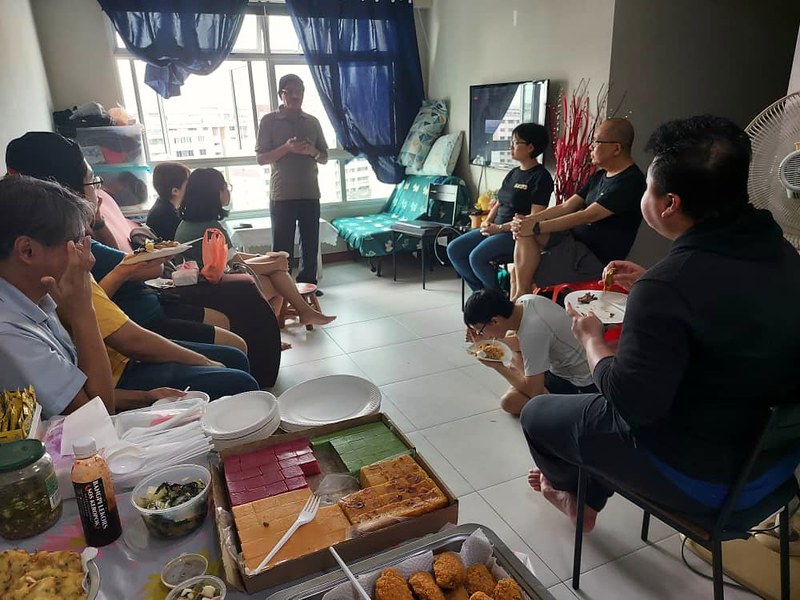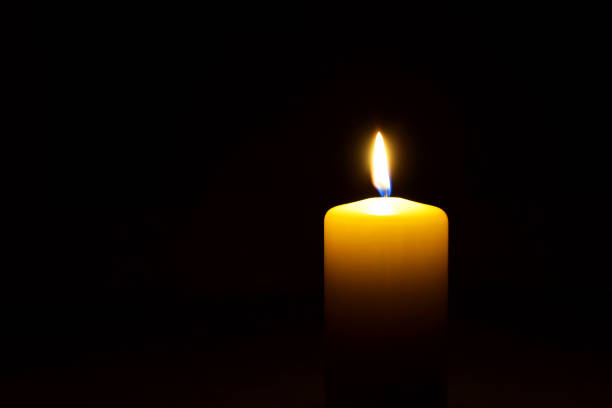
The following is a personal reflection shared by our Secretary Nora who organized a recent Death Cafe for the non-religious. Nora is also from the Council of Ex-Muslims (Singapore).
On 25 September 2022, the Humanist Society (Singapore) held a Death Cafe to facilitate some non-religious conversations about death. The event was generously hosted at one of our members’ homes (photo above). Delicious kueh was provided as snacks.
For two hours, we discussed many things, but one of the most poignant discussions was how should non-religious people conduct their funerals.
Religious communities have different rituals for their dead. Nonetheless, Cafe participants all agreed that the main purpose is to provide a coping mechanism for the living (family members and friends) and to mentally urge them: “You need to move on”.
In this light, many non-religious participants see no difference what rituals are used if they themselves pass away. Whether the deceased to be buried as Muslim, Hindu, Christian or non-religious, they will leave it to the living to decide as long it is more effective in helping them cope with grief.
Adapting a Hindu ceremony as a Humanist
In the Hindu tradition, they observe a ceremony 16 days after the death of a family member.
It is widely believed that on this day, the soul will come back to say their last goodbyes to the living. So on the night of the 15th, family members will stay awake and cook all the favorite dishes loved by the favorite person, putting them in front of the deceased picture.
On the 16th day, the family will also go to the temple to do the last prayers for the dead. Upon returning home, they will remove the deceased picture and keep it. Life then goes on.
I had an experience with this ritual a while back, when there were some stateless Hindu children under my care. For these children, their mother has passed away but they don’t know how to do the 16th day ceremony at home. They also don’t believe in cooking the favorite food of their late mother.

Nonetheless, I decided to do this ritual the Humanist way. On that night of the 15th, I placed the picture of the mother with a candle in front, then we all sat around, and chatted about memories of their mother.
To encourage them, I shared my own story first, telling the children of my first impression about the mother and why, in my opinion, she is a good mother with many strengths worthy of admiration.
Eventually, the children (a daughter followed by two sons) began to talk about their mother and what they can learn from her.
Sharing memories of the decreased
Such a ritual can be adjusted to cater to people from different backgrounds too.
A Cafe participant, who happens to be a lecturer at a school, shared that one of his students committed suicide. To help his schoolmates cope with the loss, he gathered all the students for a reflection moment, where each student will share their experience with the deceased.
Like everyone else, irreligious people have to deal with grief too. During our discussion, I shared about my experience with the death of my parents, in particular the passing of my mother, who died suddenly.
When she passed on, I went to the cemetery and spent some time reflecting and visualizing the good time I had with my mother. I did the same for my father, whom I had fond memories of.
Overall, I feel that any funeral ritual, religious or not in origin, can be adopted as long the intentions are good and it provides comfort to the living, allowing them to move on. Even for ex-Muslims individuals, if our families decide to have an Islamic burial, I believe many of us are alright with it.
Other issues discussed
The Death Cafe was a freeflowing discussion and many other topics were discussed:
- One of our participants, Roy, said he will donate his body to science after death.
- The need to prepare for death in advance, such as advance care planning and hopefully one day, euthanasia when the State allows it.
- More ways for the irreligious to cope with grief
We would like to thank Nora for organising this event. This Death Cafe is the last of our five-part Humanist Cafe series, “Getting through life together”. This programme is aimed at providing peer support for the non-religious at multiple stages of life. Read the past Cafes summaries here:




